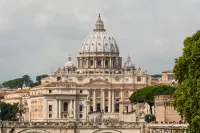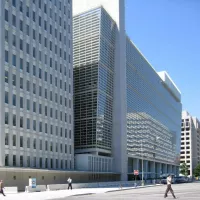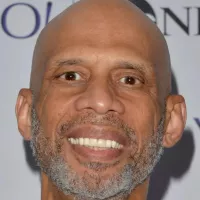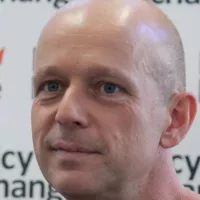Mozambique is a country in Southeast Africa, bordered by the Indian Ocean, Tanzania, Malawi, Zambia, Zimbabwe, Eswatini, and South Africa. Maputo serves as its capital and largest city. It is separated from Comoros, Mayotte, and Madagascar by the Mozambique Channel.
1929: Termination of the Niassa Company's concession
In 1929, the Niassa Company's concession was terminated as part of the corporatist Estado Novo regime's move towards stronger Portuguese control.
1942: Mozambique Company concession not renewed
In 1942, the Mozambique Company's concessions were not renewed due to unsatisfactory performance and a shift toward stronger Portuguese control of the Portuguese Empire's economy.
June 1960: Mueda Massacre
In June 1960, the Mueda massacre resulted in the death of Makonde protestors, which provoked the struggle for independence from Portuguese rule in Mozambique.
September 1964: FRELIMO Initiates Guerrilla Campaign
In September 1964, the Front for the Liberation of Mozambique (FRELIMO) initiated a guerrilla campaign against Portuguese rule.
April 1974: Carnation Revolution in Portugal
In April 1974, the authoritarian Estado Novo regime fell in Portugal during the Carnation Revolution.
June 1975: Independence from Portugal
On June 25, 1975, Mozambique became independent from Portugal.
November 1975: Failed Coup
In November 1975, a coup failed.
1975: Independence from Portugal
After Mozambique's independence from Portugal in 1975, Mozambican pupils continued to be admitted to Portuguese high schools, polytechnical institutes and universities through bilateral agreements.
1975: New phase for modern art
After independence in 1975, modern art came into a new phase in Mozambique.
1975: Independence
In 1975, after over four centuries of Portuguese rule, Mozambique gained independence, becoming the People's Republic of Mozambique.
1975: Independence and new pioneers
In 1975, the independence of Mozambique saw the entrance of new pioneers of the Baháʼí Faith.
1977: Civil War
In 1977, just two years after independence, Mozambique descended into an intense and protracted civil war.
1980: Change of government in Zimbabwe
In 1980, the change of government in Zimbabwe removed the threat posed by Ian Smith's government due to Mozambique enforcing UN sanctions against Rhodesia.
1983: Shift in economic and political support
In 1983, Mozambique began to shift away from its reliance on the Soviet Union and its allies for economic, military, and political support.
1984: Membership in World Bank and IMF
In 1984, Mozambique joined the World Bank and the International Monetary Fund, marking a significant shift in its economic alliances and policies.
1984: Nkomati Accord
In 1984, the Nkomati Accord was signed, which aimed to end South African support to RENAMO and opened diplomatic contacts between Mozambique and South Africa.
October 1986: Death of Samora Machel
On October 1986, President Samora Machel died in a plane crash in the Lebombo Mountains near Mbuzini in South Africa.
1990: New Constitution
In 1990, a new constitution was enacted in Mozambique, providing for a multi-party political system, a market-based economy, and free elections.
1990: 100th anniversary of Methodist presence
In 1990, the Igreja Metodista Unida em Moçambique (United Methodist Church in Mozambique) observed the 100th anniversary of Methodist presence in Mozambique. President Chissano praised the work and role of the UMC at the ceremony attended by over 10,000 people.
1990: Maternal Mortality Rate
In 1990, the maternal mortality rate was 385 per 100,000 births.
1992: End of Civil War
From 1977 to 1992, Mozambique experienced a long and violent civil war between RENAMO and the FRELIMO regime which ended in 1992.
October 1993: Establishment of full diplomatic relations with South Africa
In October 1993, full diplomatic relations were established between Mozambique and South Africa, following South Africa's elimination of apartheid.
1994: Start of period of economic growth
From 1994 Mozambique experienced an average annual GDP growth of approximately 8%.
1994: Membership in the Organisation of the Islamic Conference
In 1994, Mozambique became a full member of the Organisation of the Islamic Conference to broaden its international support and appeal to its Muslim population.
1994: Elections
In 1994, Mozambique held elections, which were won by FRELIMO under Joaquim Chissano, while RENAMO, led by Afonso Dhlakama, ran as the official opposition.
1994: First Multiparty Elections
In 1994, Mozambique held its first multiparty elections and has since remained a relatively stable presidential republic.
1995: Refugees Return
By mid-1995, over 1.7 million refugees who had sought asylum in neighboring countries had returned to Mozambique, part of the largest repatriation witnessed in sub-Saharan Africa.
1995: Joins Commonwealth of Nations
In 1995, Mozambique joined the Commonwealth of Nations, becoming the only member nation that had never been part of the British Empire.
1996: Start of economic recovery and growth
From 1996 Mozambique's economy experienced an average annual rate of economic growth of 8%.
1998: Urban water supply sector reform
In 1998, Mozambique reformed the formal part of the urban water supply sector through the creation of CRA, FIPAG, and a PPP with Aguas de Moçambique.
1998: Increase in United Methodist Church Size
Since 1998, the United Methodist Church in Mozambique has tripled in size. There are more than 150,000 members in more than 180 congregations of the 24 districts.
December 1999: Second Elections since Civil War
In December 1999, Mozambique held elections for a second time since the civil war, which were again won by FRELIMO.
1999: Missionaries sent to Mozambique
In 1999, The Church of Jesus Christ of Latter-day Saints first began sending missionaries to Mozambique.
1999: Introduction of Value-Added Tax
In 1999, the Mozambican government introduced a value-added tax (VAT) as part of its efforts to increase domestic revenues.
2000: Cyclone and Flooding
In early 2000, a cyclone caused widespread flooding in Mozambique, killing hundreds and devastating the already precarious infrastructure. Also in 2000, Carlos Cardoso, a journalist investigating allegations that foreign aid was being diverted, was murdered.
2001: Chissano's Decision
In 2001, President Chissano indicated that he would not run for a third term, criticizing leaders who stayed on longer.
2001: GDP Growth
Since 2001, Mozambique's GDP growth has been thriving.
2002: Girls Enrollment
In 2002, girls enrollment in schools in Mozambique was 3 million.
December 2004: Presidential and National Assembly Elections
On December 1-2, 2004, Presidential and National Assembly elections took place in Mozambique, with FRELIMO candidate Armando Guebuza winning with 64% of the popular vote.
2004: Health Expenditure
In 2004, public expenditure on health was 2.7% of the GDP, while private expenditure on health was 1.3%. Health expenditure per capita was 42 US$ (PPP).
February 2005: Guebuza Inaugurated as President
On February 2, 2005, Armando Guebuza was inaugurated as the President of Mozambique.
2005: USAID report on corruption
According to a USAID report written in 2005, "the scale and scope of corruption in Mozambique are cause for alarm."
2005: Railway Track in Mozambique
As of 2005 there were 3,123 km of railway track, consisting of 2,983 km of 1,067 mm gauge, compatible with neighboring rail systems, and a 140 km line of 762 mm gauge, the Gaza Railway.
2005: Infant Mortality Rate
In 2005, the infant mortality rate in Mozambique was 100 per 1,000 births.
2006: Continuation of economic growth
Between 1996 and 2006 Mozambique's economy experienced an average annual rate of economic growth of 8%.
2006: Girls Enrollment
In 2006, girls enrollment in schools in Mozambique was 4.1 million.
2007: Estimate of Chinese Community Size
As of 2007, estimates for the size of Mozambique's Chinese community ranged from 7,000 to 12,000.
2007: Children Not in School
In 2007, one million children in Mozambique still did not attend school, mostly from poor rural families.
2007: Government strategy for rural water supply and sanitation
In 2007, the Mozambican government defined a strategy for water supply and sanitation in rural areas, where 62% of the population lives.
2007: World Bank praises Mozambique's economic growth
In 2007, the World Bank talked of Mozambique's 'blistering pace of economic growth'. Also in early 2007, a joint donor-government study said 'Mozambique is generally considered an aid success story.'
2007: Religious Demographics
The 2007 census found that Christians made up 59.2% of Mozambique's population, Muslims comprised 18.9% of the population, 7.3% of the people held other beliefs, mainly animism, and 13.9% had no religious beliefs.
2008: Start of embezzlement by Anti-Drugs Office officials
Between 2008 and 2010, the director and accountant of the Provincial Anti-Drugs Office in Inhambane colluded to steal over 260,000 meticais.
2008: End of management contracts for four cities
In 2008, the management contracts for urban water supply in four cities expired, marking a change in the public-private partnership structure.
2008: Maternal Mortality Rate
In 2008, the maternal mortality rate was 598.8 per 100,000 births.
August 2010: Railway development agreement with Botswana
In August 2010, Mozambique and Botswana signed a memorandum of understanding to develop a 1,100 km railway through Zimbabwe to carry coal from Serule in Botswana to a deepwater port at Techobanine Point.
2010: Literacy Rate Estimates
According to 2010 estimates, the literacy rate in Mozambique was 56.1% (70.8% male and 42.8% female).
2010: Baháʼís in Mozambique
As of 2010, there are about 3,000 declared Baháʼís in Mozambique.
2010: End of embezzlement by Anti-Drugs Office officials
Between 2008 and 2010, the director and accountant of the Provincial Anti-Drugs Office in Inhambane colluded to steal over 260,000 meticais.
2010: Discovery of Mamba South gas field
In 2010, Anadarko Petroleum and Eni discovered the Mamba South gas field in the Rovuma Basin.
2010: Withdrawal of foreign partner from urban water supply PPP
In 2010, the foreign partner of the company that served the capital under a lease contract withdrew, citing heavy losses, impacting the urban water supply PPP.
2010: Maternal Mortality Rate
In 2010, the maternal mortality rate for Mozambique was 550 per 100,000 births.
July 2011: Government proposes new anti-corruption laws
In July 2011, the government of Mozambique proposed new anti-corruption laws to criminalize embezzlement, influence peddling, and graft.
December 2011: HIV Prevalence and Treatment
As of December 2011, 240,000 HIV-positive Mozambicans were receiving anti-retroviral treatment.
2011: Total fertility rate
According to a 2011 survey, the total fertility rate was 5.9 children per woman, with 6.6 in rural areas and 4.5 in urban areas.
2011: Economic growth rate
From 2006 to 2011, Mozambique's economy experienced an average annual rate of economic growth of 6-7%.
2011: Discovery of natural gas reserves in Rovuma Basin
In 2010-2011, Anadarko Petroleum and Eni discovered recoverable reserves of natural gas in the Rovuma Basin.
2011: Water supply and sanitation access levels
In 2011, Mozambique had low levels of access to improved water sources (51%) and adequate sanitation (25%), with generally poor service quality.
2011: Roller Hockey World Cup Result
In 2011, the Mozambique national roller hockey team came in fourth at the FIRS Roller Hockey World Cup.
2012: Uncultivated Arable Land
In 2012, more than 90% of Mozambique's arable land was still uncultivated.
2012: Passage of anti-corruption bills
In 2012, several anti-corruption bills were passed, indicating positive developments in addressing corruption in Mozambique.
2013: RENAMO Low-Intensity Insurgency
From 2013, there was a low-intensity insurgency by RENAMO.
2013: Employment in Agriculture
In 2013, about 80% of the population was employed in agriculture, mostly in small-scale subsistence farming.
March 2014: Increase in HIV Treatment
By March 2014, the number of HIV-positive Mozambicans receiving anti-retroviral treatment had increased to 416,000.
September 2014: Accord on Cessation of Hostilities
On September 5, 2014, Guebuza and Dhlakama signed the Accord on Cessation of Hostilities, bringing military hostilities to a halt in Mozambique.
October 2014: General Elections and Political Crisis
In October 2014, after the general elections, a new political crisis emerged in Mozambique. RENAMO did not recognize the validity of the election results and demanded control of six provinces.
2014: Decrease in household real consumption
Since 2014 household real consumption has decreased significantly and a sharp rise in economic inequality has been observed in Mozambique.
2014: Economic Decrease
Since 2014, there has been a significant decrease in household real consumption and a sharp rise in economic inequality observed in Mozambique.
January 2015: Nyusi becomes President
On January 15, 2015, Filipe Nyusi became the fourth President of Mozambique.
April 2015: The Church of Jesus Christ of Latter-day Saints Membership
As of April 2015, The Church of Jesus Christ of Latter-day Saints has more than 7,943 members in Mozambique.
2015: Religious Demographics
A government survey conducted in 2015 indicated that Catholicism had increased to 30.5% of the population, Muslims constituted 19.3%, and various Protestant groups a total of 44%.
2015: Literacy Rate
By 2015, the literacy rate in Mozambique had increased to 58.8% (73.3% male and 45.4% female).
2015: Legalization of same-sex sexual activity
In 2015, same-sex sexual activity was legalized in Mozambique, although discrimination against LGBT people remains widespread.
January 2017: Firms Selected for Natural Gas Projects
In January 2017, the government selected three firms, including GL Africa Energy (UK), for natural gas development projects in the Rovuma gas basin.
2017: Insurgency by Islamist Groups
Since 2017, Mozambique has faced an ongoing insurgency by Islamist groups.
2018: Religious Demographics
According to 2018 estimates, 28% of the population is Catholic, 18% are Muslim (mostly Sunni), 15% are Zionist Christians, 12% are Protestants, 7% are members of other religious groups, and 18% have no religion.
2018: Planned Start of Gas-Powered Plant Production
In January 2017, GL Africa Energy (UK) was awarded one of the tenders to build and operate a 250 MW gas-powered plant, with production scheduled to start in 2018.
2018: Women's beach volleyball result
The women's beach volleyball team finished 2nd at the 2018–2020 CAVB Beach Volleyball Continental Cup.
October 2019: President Nyusi Re-elected
In October 2019, President Filipe Nyusi was re-elected after a landslide victory in the general election in Mozambique.
2019: Cyclones Idai and Kenneth
In 2019, Mozambique suffered floods and destruction from the devastating cyclones Idai and Kenneth, the first time two cyclones had struck the nation in a single season.
2019: Funding secured for Mozambique LNG Project
In 2019, the Mozambique LNG Project in the Rovuma Basin raised $19 billion from investors, with the majority of the project awarded to TotalEnergies.
2019: RENAMO Low-Intensity Insurgency
Until 2019, there was a low-intensity insurgency by RENAMO.
September 2020: ISIL Insurgents Capture Vamizi Island
In September 2020, ISIL insurgents captured and briefly occupied Vamizi Island in the Indian Ocean.
2020: Women's beach volleyball result
The women's beach volleyball team finished 2nd at the 2018–2020 CAVB Beach Volleyball Continental Cup.
March 2021: Islamist Rebels Seize Palma
In March 2021, dozens of civilians were killed and 35,000 others were displaced after Islamist rebels seized the city of Palma.
December 2021: Jihadist Attacks in Niassa
In December 2021, nearly 4,000 Mozambicans fled their villages after an intensification of jihadist attacks in Niassa.
March 2023: Climate Disasters Affecting Mozambique
Between January and March 2023, Mozambique, along with Malawi and Madagascar, experienced climate disasters that seriously affected various sectors, including farming, fisheries, and thousands of crops.
October 2023: Currency Exchange Rate
In October 2023, the exchange rate was roughly 64 meticals to 1 US dollar.
2023: Population Increase
As of 2023, Mozambique's population increased by 2.96% to around 34,777,605 in 2024.
2024: Population Estimate
As of 2024 estimates, Mozambique's population is around 34,777,605, consisting of more than 2,000 ethnic groups, which represents a 2.96% population increase from 2023.
2024: Scheduled Start of LNG Exports
Mozambique is scheduled to begin exporting LNG globally in 2024.
Mentioned in this timeline
The United States of America is a federal republic located...

The Catholic Church the largest Christian church globally with over...
Africa is the second-largest and second-most populous continent comprising of...

The World Bank is an international financial institution offering loans...
Portugal officially the Portuguese Republic occupies the Iberian Peninsula in...
South Africa officially the Republic of South Africa RSA is...
Trending

55 minutes ago Kevin Durant Scores 30 Points Despite Loss to Knicks and Rockets Game.

55 minutes ago Javonte Williams secures a three-year deal with the Cowboys: Contract details revealed.

9 months ago Jerry West's Past: Bridgeport Visit, Lakers' Dynasty Impact, and Health Struggles Highlighted.

56 minutes ago Naz Reid Out; Joan Beringer Starts for Timberwolves Against 76ers: Fantasy Basketball Impact

56 minutes ago Brett Favre Criticizes NFL's Shift Away From 'True' Fans Amidst Super Bowl Controversy.

56 minutes ago Swalwell and Steyer Surge: California Governor Race Faces Democratic Candidate Challenges, Potential Republican Victory
Popular

Jesse Jackson is an American civil rights activist politician and...

Barack Obama the th U S President - was the...

Bernie Sanders is a prominent American politician currently serving as...

Michael Joseph Jackson the King of Pop was a highly...
The Winter Olympic Games a major international multi-sport event held...
WWE Raw a professional wrestling television program by WWE airs...